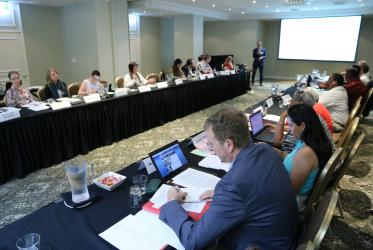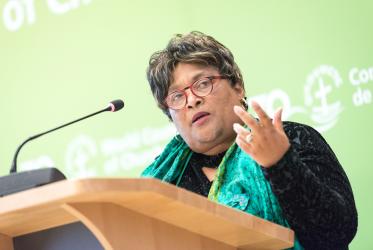Displaying 1 - 9 of 9
02 - 06 November 2021
Johannesburg, South Africa and online
Prof. Mary-Anne Plaatjies-Van Huffel: “we are redesigning theology”
03 September 2019
WCC Executive Committee speaks out on migrant crises
12 June 2015
WCC member churches pursue climate justice
01 April 2015







